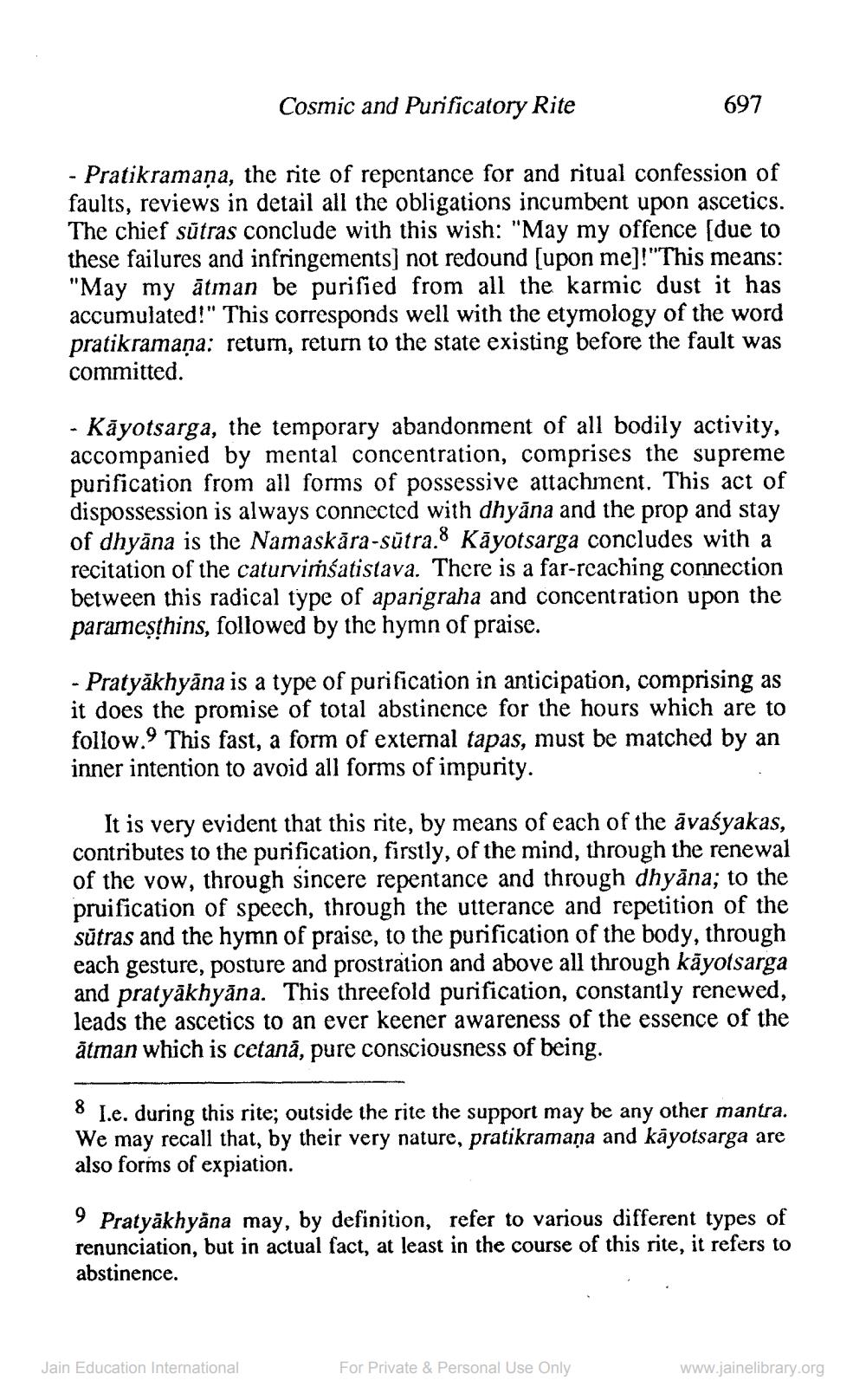________________
Cosmic and Purificatory Rite
697
- Pratikramaņa, the rite of repentance for and ritual confession of faults, reviews in detail all the obligations incumbent upon ascetics. The chief sūtras conclude with this wish: "May my offence (due to these failures and infringements) not redound (upon me]!"This means: "May my ātman be purified from all the karmic dust it has accumulated!" This corresponds well with the etymology of the word pratikramaņa: return, return to the state existing before the fault was committed.
- Kāyotsarga, the temporary abandonment of all bodily activity, accompanied by mental concentration, comprises the supreme purification from all forms of possessive attachment. This act of dispossession is always connected with dhyāna and the prop and stay of dhyāna is the Namaskāra-sutra.8 Kāyotsarga concludes with a recitation of the caturvimśatistava. There is a far-reaching connection between this radical type of aparigraha and concentration upon the parameșthins, followed by the hymn of praise.
- Pratyakhyāna is a type of purification in anticipation, comprising as it does the promise of total abstinence for the hours which are to follow. This fast, a form of external tapas, must be matched by an inner intention to avoid all forms of impurity.
It is very evident that this rite, by means of each of the avasyakas, contributes to the purification, firstly, of the mind, through the renewal of the vow, through sincere repentance and through dhyāna: to the pruification of speech, through the utterance and repetition of the sūtras and the hymn of praise, to the purification of the body, through each gesture, posture and prostration and above all through kāyotsarga and pratyākhyāna. This threefold purification, constantly renewed, leads the ascetics to an ever keener awareness of the essence of the ātman which is cetanā, pure consciousness of being.
8 I.e. during this rite; outside the rite the support may be any other mantra. We may recall that, by their very nature, pratikramaņa and kāyotsarga are also forms of expiation.
9 Pratyakhyana may, by definition, refer to various different types of renunciation, but in actual fact, at least in the course of this rite, it refers to abstinence.
Jain Education International
For Private & Personal Use Only
www.jainelibrary.org




